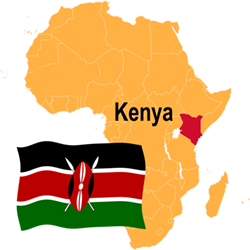 Child malnutrition is recognised as a serious public health issue globally and a major cause of child morbidity and mortality. Children from resource-poor settings are especially at risk of malnutrition. The Nutritional Improvement for Children in Urban Chile and Kenya (NICK) made it a priority to address child malnutrition in an informal settlement of Mombasa, Kenya. The main goal of NICK was to support intersectoral action to tackle social determinants of child malnutrition through three cycles of action centred on stakeholder participation.
Child malnutrition is recognised as a serious public health issue globally and a major cause of child morbidity and mortality. Children from resource-poor settings are especially at risk of malnutrition. The Nutritional Improvement for Children in Urban Chile and Kenya (NICK) made it a priority to address child malnutrition in an informal settlement of Mombasa, Kenya. The main goal of NICK was to support intersectoral action to tackle social determinants of child malnutrition through three cycles of action centred on stakeholder participation.
There are many social determinants of poor child health and nutrition—education, income, working conditions, housing, neighbourhood and community conditions, and social exclusion. Because there are many determinants of poor child health and nutrition, NICK assured the inclusion of multiple sectors into the planning and implementation processes. These stakeholders included the target community as well as the health, gender, education, water and sanitation, and agriculture sectors.
Partnering with the Kenyan Ministry of Public Health and Sanitation (MOPH) and the Urban Nutrition Working Group (UNWG), NICK held a series of meetings with all stakeholders, including local community health workers, to address malnutrition. The project objectives were planned and outlined collaboratively. Participants involved in the planning process were able to highlight a few strategies to reduce malnutrition. These strategies included: increasing the ability to farm, increasing opportunities to generate income, providing energy-saving cooking stoves, provide training on reduction of domestic violence, and providing social support for families. Participants in the planning process developed and carried out successful interventions that addressed all the strategies related to reducing malnutrition.